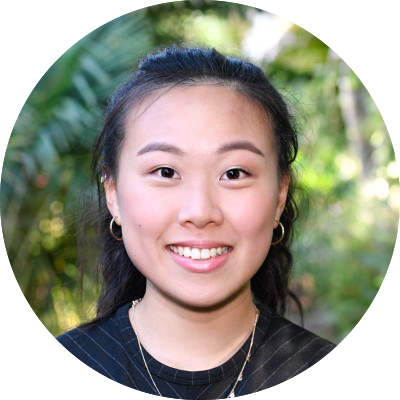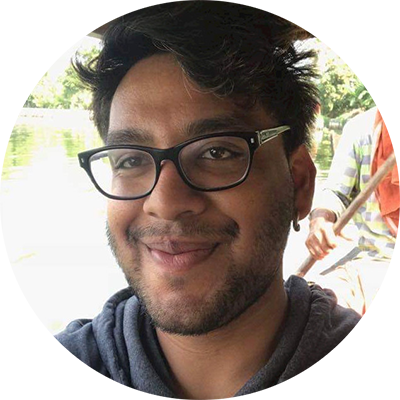Meet the interns helping us discover New Zealand’s deep tech innovations
Our goal at Bridgewest is to build a diverse deep tech community that provides more opportunities for more New Zealand entrepreneurs.
Part of this commitment is our internship programme, where talented graduates are given the chance to experience NZ’s dynamic innovation ecosystem for themselves.
This summer, two students from the University of Auckland’s Bioscience Enterprise post-graduate diploma have joined us. They’re helping conduct due diligence on biotech innovations from inventors interested in joining our deep tech incubator.
We caught up with Iris Lee and Ali Moulvi to find out how their introduction to the world of deep tech innovation is going.
What’s your story? What led you to intern at Bridgewest?
Iris: I’ve always been interested in a broad range of science, and when I finished my Bachelor in Biomedical Science I didn’t want to settle down to specialize in such a diverse field.
Luckily, I came across the Masters of Bioscience Enterprise programme. In the first year alone, we’ve been studying the commercialization of scientific innovation, and the supporting disciplines of marketing, law and finance.
It’s quite different to my undergraduate degree, but the two together translate very well to my role here at Bridgewest.
Ali: I majored in physiology during my undergraduate science degree. Subsequently, I went on to do honours in cardiovascular physiology, and then a masters in bioengineering where I looked at how the placenta develops during pregnancy.
I realised that I enjoyed science, but I didn’t want to be stuck in a lab every day. Some friends of mine work in the science innovation and entrepreneurship scene. That really appealed to me, so I applied to the post grad diploma in Bioscience Enterprise to learn how to commercialise innovative ideas from the lab and take them to market.
At a networking event we met Kate de Ridder, who’s Programme Manager at Bridgewest. She explained how Bridgewest comes in at an early stage to help nurture and develop exciting ideas from the lab to global enterprise.
What’s a typical week at Bridgewest like for you?
Ali: Bridgewest is always looking for inventors doing innovative work with science and technology. We go to a lot of networking events, collaborate with universities and meet inventors directly. If an inventor agrees to share their idea with us, we then do due diligence to investigate its potential for commercialisation. We’re the conduit between the inventors and the Bridgewest investment committee.
Iris: We meet with inventors to discuss their ideas and see if they meet Bridgewest’s investment criteria. Then we collate information, research possible markets, investigate competitors and present our findings in a report for the investment committee. Our goal is to get a thorough understanding of their technology. We add value by helping inventors express their ideas so investors can get a true appreciation of their potential. And the innovations are so exciting, we become ambassadors for each one.
Ali: The inventors’ passion absolutely rubs off. There’s a real excitement when people are sharing ideas that have the potential to make a difference to our world.
How is Bridgewest supporting innovation in New Zealand?
Iris: Understanding what goes on behind the scenes in the NZ innovation ecosystem shows how important incubators like Bridgewest are. We offer innovators opportunities, resources, and expert advisors who help them make the most of their technology.
Bridgewest is looking for long term solutions that will benefit NZ society and our economy. We want to create huge impact, so we’re exposing ourselves to as many different innovations as possible, because we’re looking for those unicorns that will really make the difference.
Ali: Bridgewest does far more than invest money. We also invest our time and offer inventors access to a global network of experts with many years’ experience in bringing deep tech innovations to market.
Iris: This role has helped me appreciate the symbiosis between scientists and entrepreneurs. Scientists are focused on the details of their invention but don’t necessarily know how to take it to market. While entrepreneurs need to be able to understand the true potential of a concept to commercialise it. When the two collaborate to develop new ideas, we have the potential to create profound impact.
What excites you most about deep tech?
Iris: You need to truly understand a technology to envisage its impact. Deep tech is very individualised, so you have to dig deep into each invention to uncover its potential. And I love that close investigation. Each invention is fascinating.
Ali: There are very few sectors which have deep tech’s potential to drive change. Personally, because I come from a medical science background, I get excited about innovation in medical devices and technology. These inventions can ease suffering and transform lives.
What’s your take on the NZ innovation ecosystem?
Ali: The greatest thing about NZ innovation is because we’re such a small country there’s only one degree of separation. Everyone knows everyone and that bestows a sense of community. You can’t be isolated in NZ.
Iris: Because everyone knows each other it encourages collaboration. The NZ science community is one whānau and everyone celebrates success. It’s an uplifting, supportive environment, not a cut-throat, competitive scene.
And because NZ is so small, the global expertise that incubators like Bridgewest bring to the table is even more important. Without this support nothing will come of new ideas. Collaboration between inventors and investors is critical to innovation in NZ.
How can we encourage more diversity in the NZ tech scene?
Iris: The incubator scene needs diversity because we need fresh ideas to tackle the diverse issues our society is facing.
I really appreciate Bridgewest’s commitment to diversity. And I’d like to see tech incubators go out and talk to students studying science and technology at schools and universities. If we introduce students early to the potential of technology and science to change the world, we can inspire more young people to get engaged in these fields.
Science can be associated with academia and writing endless papers. If we show students it’s possible to solve real world problems and have real impact, we make science and technology more relatable and aspirational.
Ali: It’s important to understand that in NZ we have a small population but not everyone is interlinked. Segments of the population exist in different spheres. So, incubators need to have a presence in all the spheres to inspire a diverse community of people to make a future in science and technology.
The only way to get anywhere in NZ is through personal connections, so build business relationships, but invest in building community relationships as well. Building and maintaining a web of community connections will open new doors.
So, what next for you both?
Ali: I’m new to the deep tech innovation ecosystem, so my personal goal is to learn more about the processes, what’s out there and where I can fit in. Deep tech incubators are definitely an area I’d like to be involved in. Being at the intersection of science and the public good feels like where I’m meant to be.
Bridgewest is very human. They’re the loveliest people, and very supportive. They’ve invested a lot of time and effort in me to ensure that I succeed as an intern.
Iris: My goal is to gain experience with different tech applications. My research has been focused on biotech innovations, and I’d love to look into other fields of tech. I’d also like to understand the decision-making process behind tech investments.
I’m really enjoying my role and the opportunity to interact with lots of innovators. It’s a friendly, collaborative environment and everyone is always checking up on each other. If you get the opportunity to intern with Bridgewest, definitely go for it.
Interested in an internship at Bridgewest?
A Bridgewest internship offers hands-on learning behind the scenes of the NZ innovation ecosystem. If you have a passion for deep tech innovation and an entrepreneurial spirit, we’d love to hear from you. We’re committed to diversity and encourage people from all cultures and backgrounds to apply for our programmes. The next round of our intern programme will open in November 2021, follow us on LinkedIn to stay informed.
















